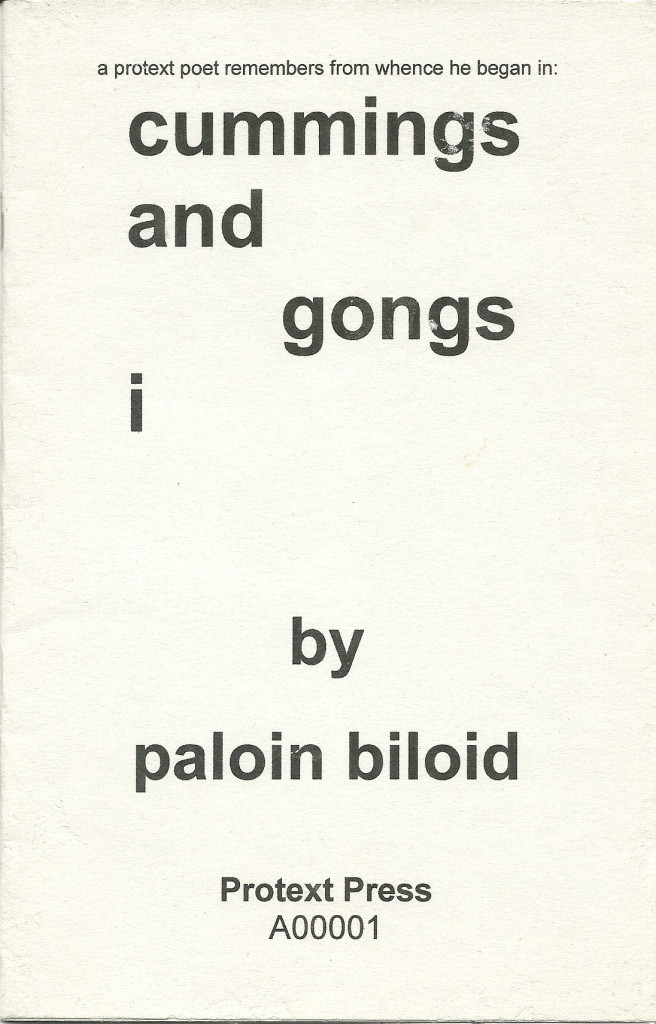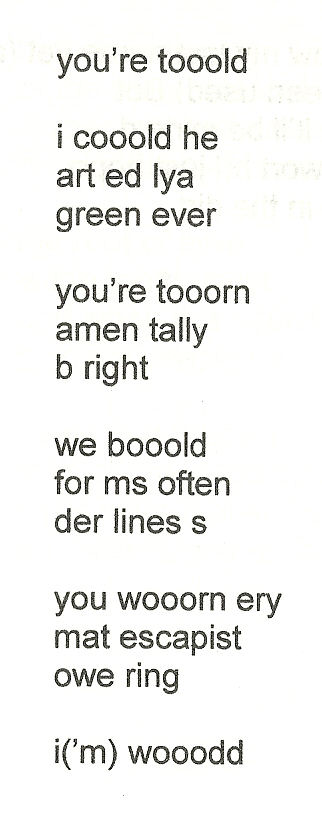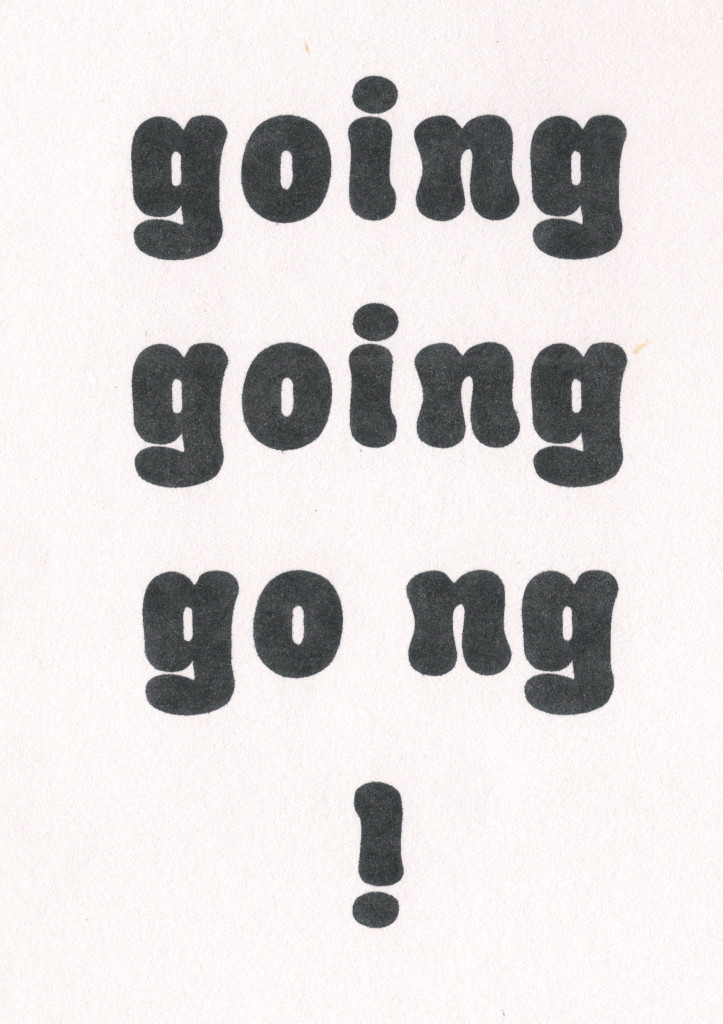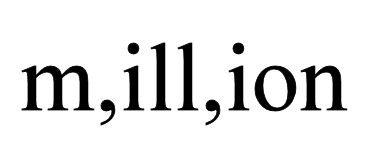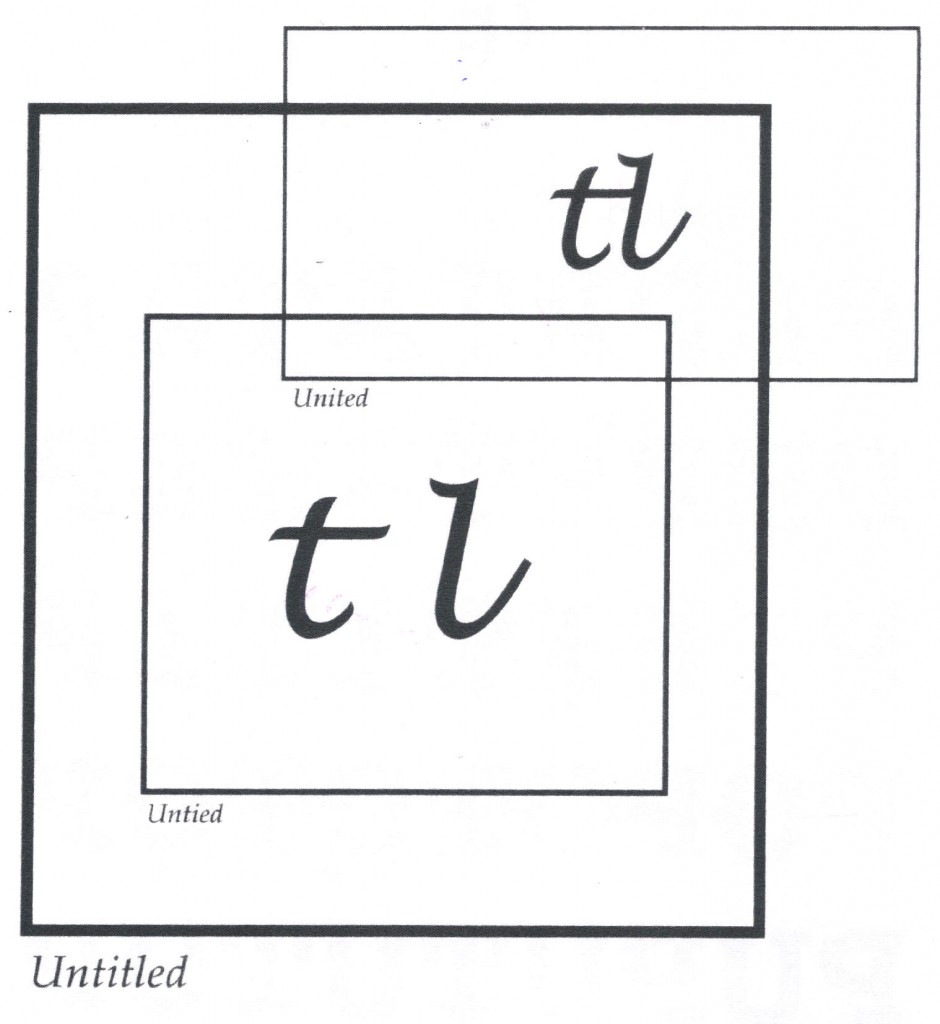Archive for the ‘Infraverbal Poetry Specimen’ Category
Entry 1540 — A New Work of Mine at Truck
Saturday, August 16th, 2014
Just an announcement today as I ccontinue to try to get my current reviews out of the way (and do seem to slowly be succeeding in doing so). Go here to see “An Evening in June, 1952,” a nostalikuical long division about (sob) my lost boyhood, mostly the part of it spent in boys’ adventure books, but also actual times camping out. Click once on my poem to see a better version of it.
The codes are simple, but I’ve put hints that help down at the far right, if you need them. Further hints available for $12 apiece at HINTS, 1708 Hayworth Road, Port Charlotte FL 33952. (Note, for those of you keeping score: yes, it is a Major Poem.) (Note, for any knownstreamer accidentally here who laughs at the presumption of my declaration, I dare you to present a cogent argument against it. Not that my declaration isn’t intended as a joke, but only in part. I absolutely believe it. I don’t think all or even most, of my poems are major, but if–at my age–I didn’t feel some were it would indicate that I’ve completely wasted my life.)
(((b=a, 5=e)))
.
Entry 1538 — Curiosities?
Thursday, August 14th, 2014
I’m really cheating today: I’m using part of a review or column for Small Press Review that I’ve been working here. The work I’m reviewing is Richard Kostelanetz’s Ouroboros (see Entry 1535):
An ouroboros is a mythological serpent swallowing its tale, so an excellent title for this collection of 188 words like, well, “ouroboros,” swallowing their tails, each time adding at least one interesting word to what they’re saying, “sour,” in the case of “ouroboros.” They are set in a highly appropriate, highly dramatic font called “Wide Latin”—very bold and jabbingly pointed at all extremities. It’s definitely fun to find smaller words inside Kostelanetz’s specimens of “circular writing,” as he terms it: “tea,” “pet,” and “petite,” for example, in “appetite,” as well as “appetite” itself, which one discovers rather than automatically sees, or “tin,” “descent,” and, most important,” “scent” in “incandescent” (because of the poetic jolt light as an immaterial scent, or a scent as immaterial light suggest to those sensitive to connotation). But can such objects be considered poems—rather than “curiosities” .
I told Chris Lott that I would explain why I thought certain arrangements of numbers Richard had made were more than curiosities, and that I’d soon explain why I thought that. Here, quickly, using Richard’s circular words, I’ll give the gist of my reasoning that some of them are, the ones that: accentuate connotative value, a virtue of poems although not necessarily a defining quality, and in the process create an image complex of aesthetic value, the way I think “appetite” turns eating into a very feminine tea party, and “incandescent” makes “scent” and “incandescence” plausible metaphors for each other; that they also sslow the reading of them, as any effective poem must (although I do not consider that a defining characteristic, either, but the result of defining characteristics, like the flow-breaks line-breaks serve as in free verse, and the extreme flow-break of a word being spelled into a circle); and, least important, but still important, they are decontextualized from prose, both by simply being called poems and by not being visually rose.
Richard’s number poems are somewhat different. I hope to discuss them, too, before long.
One further note. Many of Richard’s circular words combine into interesting narratives full of “heightened cross connotativeness,” by which I mean, one word’s mundane connotation turning vividly into a related connotation due to a similiarly mundane connotation in an adjacent circular word. For more on that, you’ll have to wait for my column, as I now see this text will become. You will be able to do that by subscribing to Small Press Review, which I wish a few of you would do; or by waiting for me to post the column in my Pages here a few months after it is published.
Note #2: I do not consider circular words to be visual poems; for me, they are visually-enhanced infra-verbal poems–the poetic value lies almost entirely on what goes on inside them verbally. Although you might say their visual sspin flicks connotations into view . . .
.
Entry 1309 — A Little Quartet
Tuesday, December 24th, 2013
With thanks to Mark Sonnenfeld in whose whose latest Marymark Press broadside it appears:
.
Entry 1250 — Rejected Pwoermd
Saturday, October 26th, 2013
I was going to use the pwoermd, “mythstery,” inside the open letters of “the core of faereality,” which is the dividend of a set of long division poems I’ve been working on, but decided it was too frothily cute. But maybe not worthless? Anyway, here it is. And I’m outta here.
.
Entry 1034 — A Math Poem by Ed Conti
Wednesday, March 6th, 2013
This is an extremely plural specimen of plurexpressiveness: an infraverbal, visual, mathmatical poem by the best composer of infraverbal light verse I know of, and among the best light verse poets of any kind, Ed Conti. To see some other great examples of his work, go here.
.
Entry 995 — A Gem by Kevin Kelly
Saturday, January 26th, 2013
The following is a pwoermd Kevin Kelly posted to Spidertangle the other day:
hearthththrob
I like the way it makes me, at any rate, close to simultaneously strongly, sympathetically identify with the one whose heart throb is involved, and laugh at the poor jerk. The lisp of the heartbeats is any excellent touch, too. Not to mention the stuttering attempt to say, “the,” but not be able to. Never has “heart throb” been so fully writ.
.
Entry 929 — a form of i
Wednesday, November 21st, 2012
I got home yesterday afternoon after a very nice, mostly relaxing time at my niece, Laura’s, wedding (getting to which was the only unrelaxing time, because of my old man’s plumbing), and visiting my brother’s and sister’s families. I got a few things done once home, and this morning, but want to take the rest of the day off, so will only post the bit of light infraverbal poetry below–which I came up mwith last night and, believe it or not, don’t consider mathematical, unless you want to call understanding that the square root of minus one equals i in mathematics makes it so. Calling it mathematical would be like calling “1self” mathematical. Using math symbols does not make a text mathematical; only showing and using math operations does that. For me.
Note: in mathematics, i stands for imaginary, because solution, being impossible to determine, is “imaginary.” I expect to be using it in upcoming math poems, and possibly the entire piece above.
.
Entry 855 — An Appropriately Titled “Untitled”
Saturday, September 8th, 2012
The following infraverbal masterpiece is the world’s first artwork given the title, “Untitled,” appropriately. It’s just one of the 78 pieces in Identities, a collection of work by Irving Weiss just out from Xexoxial Editions. It’s something to wonder through many more times than once, with a fantastic skitter through the arts, from low to high, 100% verbal to 100% visual, the comic to the largest ultimates (as well as a combination of both). I hope to say more about it here and elsewhere.
Entry 846 — A Pwoermd by Stephen Nelson
Thursday, August 30th, 2012
Stephen composed this in a dream! I think that happened to me once.
I consider it primarily an infraverbal poem, because dependent on what happens inside it. But it is also a visual poem. What makes it terrific is that, as spelled, it is a double metaphor: for (1) shape-changing flexibility, and (2) a flood surging forward too quickly for its spelling to bother with correctness–but brilliantly describing it as well as denoting it. I got it from the Otherstream Unlimited site, where I called it “an instant classic.”
.

